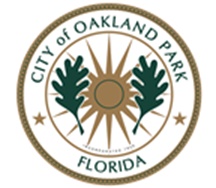Medical care is defined as amounts paid for the diagnosis, cure, mitigation, treatment, or prevention of
disease, and for treatments affecting any part or function of the body. The medical care expenses
must be primarily to alleviate or prevent a physical or mental defect or illness.
Expenses are eligible for reimbursement if they were incurred during the period when the participant
(or the qualified dependent) was covered under the plan. Expenses are incurred when services are
rendered, regardless of when the expense is paid.
The federal regulations regarding the eligibility of over-the-counter medications and supplies have changed.
Effective January 1, 2011, you need a letter from your physician stating that the medication and/or supply is necessary for the treatment of a specific medical condition.
You will be required to pay for the items out of pocket and submit a Health Care Expense Documentation form, your itemized receipt and a letter of medical necessity from your physician to request reimbursement.
Medical Care
Acupuncture
Ambulance Transportation
Chiropractic Services
Fertility Treatment
Hospitalization
Laboratory Fees
Nursing Homes and other long term care facilities
Office Visits
Prescription medicines
Psychiatric Care
Surgery
Therapy
X-rays
Dental Care
Examinations
Dental Implants
Bridges and Crowns
Periodontal Services
Fillings
X-Rays
Occlusal guards to prevent teeth grinding
Orthodontia
Dentures
Teeth whitening is NOT eligible.
Vision Care
Examinations
Contact Lenses
Materials needed for using lenses, such as saline solution and cleaner
Glasses
Laser eye surgery
Prescription sunglasses
Preventive Care
Periodic health exams, including related lab and x-ray services
Routine prenatal and well child care exams
Immunizations, child or adult
Flu Shots
Diagnostic Screening services
Medical monitoring & testing supplies
Alcholism Treatment at an inpatient center or outpatient counseling
Drug Addiction Treatment at an inpatient center or outpatient counseling
Stop Smoking Programs, including nicotine gum and patches
Equipment
Crutches
Hearing aid and the batteries necessary to operate it
Oxygen and related equipment
Prosthesis
Wheelchair and the cost of operating and maintaining the wheelchair
Transportation
Transportation expenses necessary to receive medical care, including bus, taxi, train, plane fares, parking fees and tolls
Transportation expenses of a caretaker (parent, nurse, etc) who must accompany a person who needs medical care
Up to $50 per night for lodging, when such lodging is required to receive medical care
Out-of-pocket expenses for your car, such as gas and oil, when you use your car for medical reasons
Car expenses such as depreciation, insurance, general repair, or maintenance expenses are NOT eligible.
If you do not want to use your actual expenses, you can use a standard rate (determined by the Internal Revenue Service) for use of your car for medical reasons.
You can add fees and tolls to your medical expenses whether you use actual expenses or use the standard mileage rate.
The standard mileage rate for expenses incurred from January 1, 2011 to June 30, 2011 is 19 cents/mile.
The standard mileage rate for expenses incurred from July 1, 2011 to December 31, 2011 is 23.5 cents/mile.
These mileage rates are subject to change at any time; please refer to the Internal Revenue Service guidelines for current rates.
(The source of this information is IRS publications IR-2009-111 and IR-2008-131, last updated 12/8/2009)
Potentially Eligible Expenses
You may be reimbursed only if these items are prescribed by a physician for the treatment of a specific medical condition.
To be eligible for reimbursement, you must submit a letter of medical necessity from your physician.
These items are not eligible if their primary purpose is to maintain general good health.
You will be required to pay for the items out of pocket
and submit a Health Care Expense Documentation form, your itemized receipt and a letter of medical necessity from your physician to request reimbursement.
Over-the-counter drugs
Over-the-counter supplies
Vitamins and supplements
Fitness Classes
Health Club Dues
Weight Loss Program
Ineligible Expenses
Child Care for a Normal, Healthy Child
Cosmetic Procedures
Hair Removal
Household Help
Insurance Premiums
Personal Care Items, such as toothpaste, soaps, and lotions
Teeth Whitening
This list is not intended to be inclusive of all potentially eligible and ineligible expenses. If you have a question regarding a specific expense, please contact
Customer Service.
(888)537-3539
info@benefitsworkshop.com
The primary source of this information is IRS Publication 502, however, it has been paraphrased
and/or modified to provide information specific to Health Care Flexible Spending Accounts. The primary
differences between the rules outlined in Publication 502 and the regulations governing Health Care
Flexible Spending Accounts are the expenses are eligible when they are incurred (when services are rendered), not when they are paid.
Also, insurance premiums are not considered an eligible expense, unless the insurance plan is sponsored
by the employer, and generally, those premiums are tax-free due to inclusion in a Section 125 Premium
Conversion Plan.
The titles and content of this page is offered for general information only. Please consult a
qualified tax advisor for specific information.
Copyright © 2012. All rights reserved. BenefitsWorkshop services are provided by JAG Enterprises, LLC.

